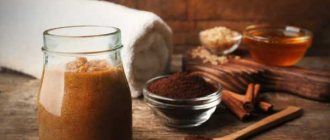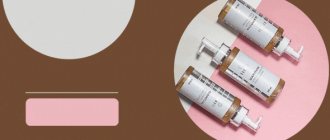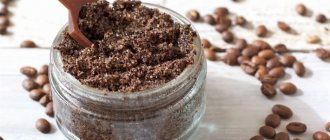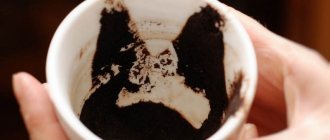Many people start their morning with a big cup of coffee. About 90% of the world's population consumes caffeine daily, and more than half consume more than 300 mg per day.
Caffeine is a stimulant and helps us wake up. But there are supporters of the theory that caffeine stimulates our skin. They say coffee peeling reduces cellulite and strengthens the skin. However, these results are usually temporary.
The desire to stay young causes many to do irrational things, often without spending time on research. If you were to look for scientific studies that support the use of caffeine as an anti-aging agent, you will find very little.
In this article, we'll look at the topic of caffeine and its effects on your skin.
Is there a connection between coffee and acne?
Coffee has been linked to a number of health problems, including those that affect the skin.
As a result, people who have acne may worry that drinking coffee may make their condition even worse. Some may believe that giving up coffee clears up their skin. However, there is no evidence yet that coffee itself causes acne.
Coffee is a source of antioxidants that may be beneficial for the skin. But for some people, drinking coffee can make acne or oily skin worse, as can adding sugar or milk to it.
However, most people who have acne problems can drink coffee in moderation, simply by avoiding or limiting additives such as milk and sugar.
But how does it affect the skin?
Caffeinated drinks are known for their antioxidant content. Antioxidants such as phenols help fight free radicals that can harm the skin. They dilate blood vessels under the skin to improve metabolism and the appearance of the skin. This is where the skin benefits of drinking caffeinated drinks end.
Drinking large amounts of coffee isn't always beneficial, but there are some skin care products that contain caffeine that can benefit your skin. Keep reading to find out more.
Benefits of coffee for skin
Antioxidants are substances that prevent or slow down the damage or oxidation of cells in the body. Many plant foods, especially fruits and vegetables, contain antioxidants. Coffee is also a good source of antioxidants.
Some evidence suggests that antioxidants may be beneficial for the skin and may improve skin conditions.
One small study found that antioxidants helped improve skin conditions while using acne medications such as benzoyl peroxide and salicylic acid.
View Detox Supplements
Day 4: body pain continues
On the fourth day, the body aches did not stop, and Alexandra began to worry that she was sick. Can caffeine addiction really have such an effect on the body? The girl tried her best to be disciplined and did not resort to caffeine to relieve her symptoms.
“People who drink more coffee or tea are literally changing their brains on a physical level and at the same time developing a tolerance to caffeine,” says Carly Brauner. - The brain creates more adenosine receptors because existing receptors are constantly being “filled” with caffeine. When many receptors are created, caffeine tolerance increases and the coffee drinker will have to drink more cups of their favorite drink to feel its effects.”
The duo HammAli & Navai ceased to exist
Payments for children and other benefits that will be canceled from April 1
Bread, gluten-free or with baking powder. Which flour is better to choose
Coffee and hormones
Caffeine can affect hormone levels in the body, and here's what may concern regular coffee drinkers:
Cortisol
Research has shown that caffeine can increase levels of the so-called stress hormone, cortisol. Too much cortisol can have harmful effects on the body.
A study of 144 young women found that higher levels of stress led to more acne.
Cortisol can also cause the skin to produce more sebum or oil, which can lead to acne.
Chronically high cortisol levels can affect other health problems that may be associated with acne, including:
- weight gain
- depression
- digestive problems
- anxiety
Additionally, caffeine can interfere with sleep, which also affects cortisol levels.
Lack of quality sleep can cause the body to produce more cortisol, which can contribute to inflammation. This inflammation can affect the skin, causing more acne.
To avoid some of the possible negative effects of coffee, people may need to avoid caffeine several hours before bed.
Insulin
Caffeine can also cause insulin levels to rise, and research shows that this can worsen skin conditions.
One study found that people who had higher insulin levels were more likely to have severe facial acne.
Estrogen
Caffeine may alter estrogen levels in women of childbearing age, but this varies from person to person.
An old study of 250 women found that consuming 200 mg of caffeine per day increased estrogen levels in Asian participants but decreased them in white people.
Read reviews about detox supplements
Etiology and pathogenesis
Coffee stains on the skin usually indicate that the patient has neurofibromatosis type I , a multisystem disease characterized by spots on the back, neck, and axillary areas, as well as skeletal dysplasia, benign or malignant tumors of the nerve sheaths (neurofibromas). The average incidence of neurofibromatosis type I is 1:3000. Its main causes are considered to be mutations or deletions (loss of a section) of the NF1 gene. This gene is responsible for the production of neurofibromin 1, a protein that suppresses the occurrence of tumors of the nervous system. A decrease in its synthesis leads to the appearance of neurofibromas and other clinical signs of the disease.
Coffee stains on the skin can also occur for the following reasons:
- Albright-McCune-Sternberg syndrome - premature puberty, multiple fibrous osteodysplasia, skin hyperpigmentation.
- Bourneville-Pringle disease - tuberculous sclerosis; a rare genetic disease in which multiple benign tumors form in organs and tissues.
- Fanconi anemia is manifested by a complex of symptoms, the most serious of which are hematological disorders and tumors.
- Coffin-Siris syndrome is characterized by aplasia or hypoplasia of the distal phalanx or nail on the fifth toe, developmental delay, mental retardation, coarse facial features, etc.
Cafe-au-lait skin spots may be the result of RAS mutations —changes in the RAS family of genes and proteins. These are small GTPases (enzymes that bind and hydrolyze guanosine triphosphate, an energy substrate for RNA), which are involved in signal transmission from outside the cell and regulate cell division. Some RAS mutations promote the emergence and metastasis of tumors.
In 50% of patients, the genetic mutations responsible for the appearance of coffee spots on the skin occur spontaneously. That is, the hereditary mechanism of transmission of the disease in this case is of indirect significance.
As for pathogenesis , coffee spots appear against the background of an increase in melanin production and the presence of giant melanosomes in the skin. In patients with neurofibromatosis type I, the number of melanocytes in age spots increases more significantly compared to other diseases.
Coffee, milk and acne
Many people add milk or cream to their coffee. There is some evidence to suggest that drinking large amounts of milk may cause acne or worsen existing skin conditions.
- One study found that teenagers who consumed more skim milk had significantly more acne than those who consumed whole milk or no milk at all.
- Another study of 57 people with acne found that those who consumed more milk had more acne.
- A study on the link between diet and acne suggests that drinking milk increases levels of insulin-like growth factor (IGF-1). Further research claims that high levels of IGF-1 lead to acne.
How does caffeine affect the skin?
Caffeine is a stimulant. Natural is found mainly in coffee and tea. It strengthens the central nervous system and stimulates brain function, helping you stay awake.
Caffeine is an addictive substance. It is quickly absorbed into the blood. Side effects from consuming caffeine include: dehydration, increased urination, nausea, increased blood pressure, increased heart rate, anxiety, and more. Excessive caffeine consumption can lead to hair loss.
Coffee, sugar and acne
People who have acne can also try limiting or avoiding sugar in their morning cup of coffee.
Research has shown a link between acne and foods with a high glycemic index, or those that cause spikes in blood sugar. These foods often contain large amounts of sugar, especially added sugar.
One study found that people who consumed more glycemic foods had a greater risk of acne. Additionally, a systematic review found that a low-sugar diet may help improve overall skin health.
Useful and harmful properties
The caffeine contained in the beans helps improve blood circulation and dilate blood vessels. Similar changes are observed when taken orally, as well as in the case of topical use. The benefits of coffee for the skin are undeniable. Therefore, it is included in various cosmetics.
When systematically applying coffee ointments and masks, the following effects on the skin are noted:
- maintaining water balance. The dermis takes on a healthy appearance;
- normalization of the activity of the sebaceous glands;
- elimination of inflammation;
- lightening blackheads;
- reduction of puffiness, disappearance of bags and bruises under the eyes;
- getting rid of cellulite;
- the epithelium becomes elastic and taut. Small wrinkles disappear.
Coffee consumed in large quantities spoils the appearance of the skin. In addition, cosmetics can cause harm, but only if they are used in the presence of active inflammation, open wounds and a tendency to rosacea.
Drinking coffee without worsening acne
There are several ways to enjoy your coffee without it negatively affecting your acne. Such methods are given below:
- Consuming less caffeine overall: People can do this by buying decaf coffee or drinking coffee much less frequently. However, they should be aware of other drinks such as tea and energy drinks that may also contain caffeine. The Food and Drug Administration (FDA) recommends no more than 400 mg of caffeine per day, or 4 to 5 cups of regular coffee. However, some people are more sensitive to the effects of caffeine and should consume much less than this amount.
- Reducing sugar: This can be achieved by adding less sugar to your coffee, as well as reducing or eliminating sugary sodas from your diet.
- Reducing low-fat or skim milk: You can do this by replacing milk with dairy cream, or using whole milk.
Care and cosmetics
Maintenance must be regular. Every day, the skin is subjected to serious tests - the pores become clogged, and as a result, the cells cannot receive enough oxygen and nutrients. Care is not just washing twice a day with plain water, but a whole step-by-step procedure:
- make-up remover using soft foam without aggressive substances, based on micellar water;
- treatment with tonic;
- applying serum;
- using a product for the eye area (for swelling, circles, possibly with a lifting effect);
- applying a moisturizing and nourishing cream (different for night and day).
Approximately 2 – 3 times a week you need to use a scrub. You can buy ready-made products or make the composition yourself. Drinking brewed coffee, ground almond kernels, and sea salt are suitable for this. you can add honey, essential oils, vitamins, fruit or vegetable purees, bran, and so on.
You should also pamper your skin twice a week with a mask containing nutrients, collagen and hyaluronic acid. For age-related and problematic dermis, salon procedures are more suitable:
- mesotherapy;
- chemical peeling;
- microcurrents;
- laser and phototherapy.
It is very important to use both decorative and skincare cosmetics in exact accordance with your skin type. Before use, you need to conduct an allergy test - apply the product to the elbow or wrist for 5 minutes. Under no circumstances should you use expired or low-quality cosmetics, as this can lead to a deterioration in the condition of the epidermis and allergic reactions.
There are many factors that spoil the skin. But negative consequences can be avoided if you adhere to all the rules of care and lead a healthy, fulfilling lifestyle.
Causes and treatment of acne
Acne develops when the skin produces too much oil. This excess oil causes skin cells to become stuck inside the pore. Bacteria from the skin combine with oily and dead skin cells to form a red, inflamed bump.
The causes of acne are different for each person. Research shows that acne can be passed on genetically. But they can appear at any age, regardless of whether people have a family history of acne or not.
If a person has acne, they may first try over-the-counter products that contain salicylic acid or benzoyl peroxide.
If the skin does not improve within a few weeks or worsens, you should consult a dermatologist. Failure to treat acne can lead to scars on the face and body and emotional distress.
Principles of treating coffee stains on the body
Before starting treatment for coffee stains on the skin, more serious pathologies should be excluded. For this patient, it is necessary to carefully interview, carefully examine, and prescribe laboratory and instrumental studies. It is impossible to do this in a cosmetology office, so it is important to maintain continuity and maintain contact with doctors of other specialties.
If coffee stains are associated with any diseases, maximum efforts should be directed toward treating the underlying pathology. If coffee stains exist on their own, or the underlying disease has already been treated, but areas of hyperpigmentation remain, you can use hardware methods.
One such technique is the Q-switched alexandrite laser . In a study of 48 people, it showed good to excellent effectiveness in more than half of the patients (51.4%) after an average of 3.2 sessions. Moreover, relapse was recorded in 10.4% of cases. Laser treatment for coffee spots carries a high risk of post-inflammatory hyperpigmentation - about 50%. If this occurs, therapy should be discontinued until hyperpigmentation resolves.
IPL therapy has also been successfully used to treat coffee stains . Intense pulsed light (IPL) selectively destroys melanin in areas of excess accumulation, resulting in lighter skin. Modern IPL devices, such as M22 (Lumenis), are equipped with light filters that allow the skin to be exposed to the required range of the radiation spectrum. Thanks to this, IPL can be safely used to treat coffee stains on dark skin - up to Fitzpatrick phototype V.
It has been noticed that if the coffee stain is completely removed, then the risk of its reappearance is minimal. If the stain is partially removed, the probability of recurrence is 50%.
Benefits of coffee in cosmetics
Everyone has probably heard about the wonders of caffeine in eye cream or body scrubs. But how effective are these products? Caffeine in topical products has anti-inflammatory and antioxidant properties.
The caffeine in wraps can also temporarily reduce the appearance of cellulite by dehydrating the tissue. But, again, these are most likely “short-term effects.” If you like coffee-based skincare products, continue to use them. But don't expect any miracles or long-term results.
How to remove jowls on your face at home
It is quite difficult to cope with such a problem at home. All methods can be classified as preventative rather than producing tangible results.
The most effective method can only be if a person is overweight. With proper weight loss, fat will disappear from the cheeks, and with additional care, the skin will quickly tighten and create a harmonious oval of the face. However, you should not allow sudden weight loss, which will only worsen the problem. The best option is to lose 4-5 kg per month under the strict supervision of a nutritionist and endocrinologist.
If the problem has not yet gone far and is just beginning to appear, use massages, masks, and exercises as a correction or prevention.
Summary
Coffee contains beneficial antioxidants that can be beneficial for your skin and overall health. However, drinking too much caffeinated coffee and adding sugar or milk can make acne worse.
Acne-prone people should try cutting back on caffeine, dairy (especially low-fat dairy), and sugar to see if it helps improve their skin.
If your acne continues to get worse or doesn't improve, don't waste any time scheduling a consultation with a dermatologist.
Girls, this world is not so bad as long as there is coffee in it :) Take care of yourself. Write in the comments what else you would be interested in reading about. See you in new articles!
How can I thank you?
If you liked the article and our website was useful to you, you can also help us by posting a link on social networks.
Consumer Reviews
Today, many women actively use a variety of cleansing and toning masks prepared using coffee. Reviews are listed below.
“Whoever has tried to treat acne at least once in their life knows how thankless it is. Not a single cleansing gel was suitable for me; new inflammations constantly appeared. Dryness and irritation were also common. Clear skin seemed like an unattainable dream for me. Cleansing masks with coffee helped form a new perspective on the problem. At first it was interesting to try folk remedies, but I didn’t expect such a brilliant result. Soon I noticed that acne stopped appearing. I started using natural ingredients regularly and was pleased with the results.”
Irina 28 years old
“Problem skin is frustrating. So it was with me. Endless rashes spoiled my mood; I didn’t want to leave the house. I was very upset about my appearance and didn’t want to communicate with people. Acne did not allow me to live life to the fullest and enjoy simple things. When I used cleansing masks with coffee, my face seemed to be transformed and acquired a hint of cheerfulness. Now I can enjoy the reflection in the mirror. Pimples and blackheads are gone."
Olga 25 years old
“I didn’t realize that coffee helps fight acne?! I tried many products to care for oily skin, but the effect did not suit me. The acne seemed to go away, but after two weeks it appeared again. One day my hands gave up. I didn't want to waste time and money. By chance, I tried masks based on natural ingredients and was pleased. Now I constantly use them in addition to facial care. I have loved coffee since my youth, so I am happy to use it as a basis for proper cleansing. The number of acne began to decrease."
Christina 30 years old
Thus, the opinions of experts about coffee are very contradictory. It is better to use this product as a cosmetic than to ingest it.











